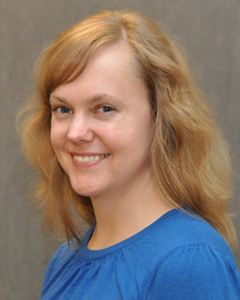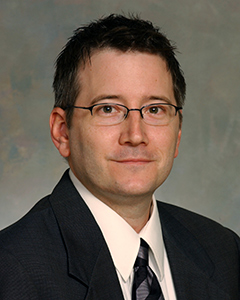|
Jennifer Johnson
Joshua Ranger
Jennifer Johnson
 Employment Employment
Associate Archivist, Cargill, Incorporated, 2007-present; Archivist, U.S. Department of Energy, 2005-2007; Government Records Analyst, Government Records Assistant, Collections Assistant, State Archives, Minnesota Historical Society, 1998-2003.
Education
M.L.S., University of Maryland, College of Information Studies, 2004; B.A., History and International Studies, Stephens College, 1999.
Professional Activities
MAC: Council, 2012-2015; Education Committee, 2011-present; Spring 2013 Program Committee; Spring 2011 Local Arrangements Committee.
SAA: Career Development Subcommittee, 2014; Nominating Committee, 2013-2014; Annual Meeting Task Force, 2011-2013; Business Archives Section, Member At Large, 2011-2012; Education Committee, chair, Member, 2007-2011; Awards Committee, Pease Award, 2010; Program Committee, Student Program Subcommittee, 2008-2009.
Other: Archives Leadership Institute: 2011. Associates of the James Ford Bell Library: Board member, 2012-present. MARAC: Fall 2007 Program Committee; Steering Committee, Maryland Caucus Representative, 2006-2007. TCART (Twin Cities Archives Round Table): President, 2010-2014.
Back to top
2015 marks the last year of the strategic planning document that MAC adopted in 2010. What priorities do you think MAC should focus on moving forward?
My first priority is managing MAC without a budget deficit. In order to grow our membership and offer development opportunities, we must be financially responsible year after year. We need to take a look at our biggest source of income, annual meetings, and identify areas where we can minimize our expenses and maximize our revenue. Rather than raising dues, we should investigate other areas of income such as expanding vendor relationships and advertising.
Member education and development are ongoing commitments for MAC, and I will continue to make them a priority. Quality educational experiences and diverse volunteer opportunities remain organizational goals. One area which needs more attention is how to support members who are unable to take advantage of such opportunities in person. We can better serve these members by having a robust online environment to disseminate information, by expanding the speakers bureau, and by leveraging affordable technology to make workshops and sessions available to members remotely.
We need advocacy for the profession and for archivists at the regional, not just national level. Advocacy begins within our own communities and our institutions. Within our communities we should address public awareness and use of archives. Within our institutions we must address archives support and job creation. With MAC, we can all learn how to be better advocates. The future of our profession relies on the education, exchange of ideas, and support we all receive as MAC members. I look forward to working on these priorities as MAC President.
Joshua Ranger
 Employment Employment
University Archivist, University of Wisconsin Oshkosh 1998-present; Public Records Archivist, Wisconsin Historical Society, 1997-1998.
Education
M.A., Library and Information Studies, University of Wisconsin-Madison, 1998; B.A. (Honours), Political Studies, University of Cape Town, 1996; B.A., International Relations, University of Wisconsin–Madison, 1994.
Professional Activities
MAC: Nominating Committee, chair, 2013; Online Publications Working Group, chair, 2012-2014; Secretary, 2009-2013; Symposium Committee cochair, 2013 (Green Bay); Working Group on the Constitution and Bylaws, member, 2011; Annual Meeting Program Committee, cochair, 2009 (St. Louis); Public Information Officer, 2002-2006.
2015 marks the last year of the strategic planning document that MAC adopted in 2010. What priorities do you think MAC should focus on moving forward?
Having been part of MAC’s last two strategic planning activities, I look forward to the opportunity to lead MAC’s stakeholders in developing a plan to inform the next five years of MAC’s growth. Any new strategic planning project, however, must begin with an assessment of the last.
As President, I will ask officers, Council members and others to gather information to help us learn how activities like MAC’s education initiatives; mentoring and student programs; governance and technology changes; and marketing efforts have progressed and if they had the desired effect of benefiting MAC and its members. In addition to using existing data, this process will involve conducting a broad survey of the membership on their opinions of these and other recent MAC activities.
Only when assessment is completed should we begin developing a new strategic plan. I look forward to collecting ideas from Council, officers, ex-officios and all MAC members. I certainly have some of my own to contribute, too. I hope to emphasize growing MAC’s membership through renewed retention and recruitment initiatives. Giving MAC’s new education initiatives time to develop is also important to me. I also want to convene a summit regarding Archival Issues with current and past editors, archives faculty and interested members to discuss the state of the publication and determine its needs going forward. Finally, while it may not be part of the strategic plan, I do plan to work with our Vice President and local archivists to bring MAC back to Chicago for an upcoming Annual Meeting!
Back to top
|